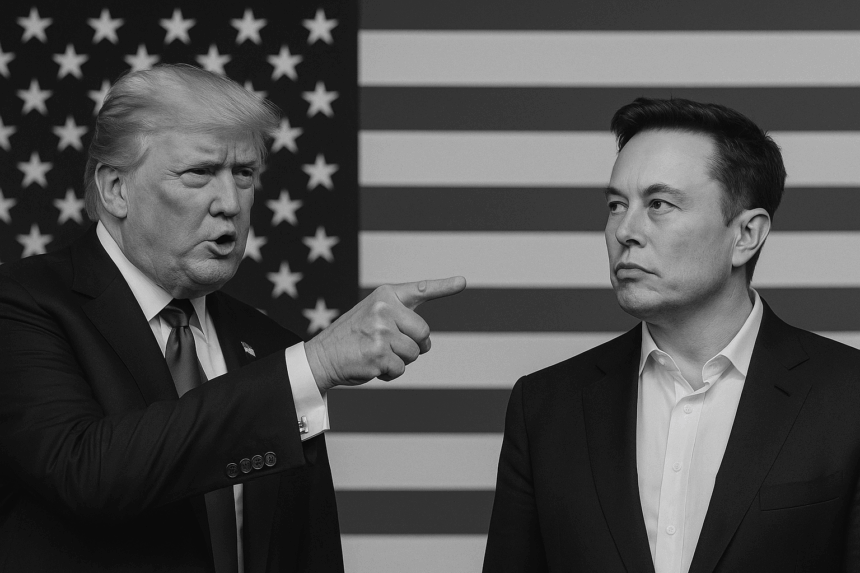Update 07 June 2025: President Donald Trump considering selling his Tesla vehicle amid his public row with the company’s chief Elon Musk, reports BBC and CBS.
The once cooperative bond between Donald Trump and Elon Musk unravels publicly. Musk launches a relentless critique of the administration’s budget plan. At the heart of the dispute lies the U.S. government’s approach to EV tax credits and spending cuts. Musk worries the bill will balloon the deficit, while Trump accuses Musk of being upset over the cancellation of EV mandates. This clash highlights more profound disagreements over economic policy and the future of green energy subsidies.
What’s Happening & Why This Matters
The Big Beautiful Bill, designed to manage federal spending, includes ending the “clean vehicle credit.” The federal EV tax credit currently allows buyers to receive $7,500 off the purchase of an electric vehicle through 2032. The bill proposes cutting this off by the end of the year, accelerating the phase-out for automakers like Tesla that have sold more than 200,000 electric vehicles (EVs). A $250 fee for EV drivers and $100 for hybrids would start being collected during vehicle registration.
Elon Musk calls out the bill’s rapid passage, claiming it was “passed in the dead of night so fast that almost no one in Congress could even read it.” He warns that the bill’s inclusion of “a mountain of disgusting pork” wastes taxpayer dollars and increases the deficit.
Donald Trump counters that Musk was aware of the bill but only objected when the EV mandate was under consideration for cuts. He calls Musk “disappointed” and “crazy” for opposing the bill. The president threatens to withdraw government subsidies and contracts from Musk’s companies, which have received $38 billion in funding over the years, including key loans that helped Tesla succeed.
The dispute also touches on subsidies for oil and gas, which remain untouched in the bill. Musk points out this imbalance, noting that cutting EV incentives without addressing fossil fuel subsidies seems unfair. He also clarifies that his interest in EVs stems from energy security concerns rather than environmental motivations.
Republican lawmakers express unease about other provisions in the bill, including a 10-year moratorium on state-level AI legislation. Representative Marjorie Taylor Greene questions handing over AI regulation power to the federal government without a clear understanding of future technology capabilities.
This public feud between two influential figures draws attention to the tension between advancing green technologies and managing federal budgets. Musk’s companies, including Tesla and SpaceX, play critical roles in shaping the future of sustainable transport and space innovation. Yet, the federal government’s cost-cutting approach may alter the trajectory of these innovations.
TF Summary: What’s Next
The conflict between Donald Trump and Elon Musk over the Big Beautiful Bill reflects wider debates about government spending, energy policies, and technological innovation. The bill’s passage in the Senate remains uncertain, with potential amendments that could change EV incentives and AI regulations.
As lawmakers scrutinize the bill, Musk’s warnings about government waste and deficit expansion underscore the ongoing struggle to strike a balance between fiscal responsibility and supporting green technology. The future of federal subsidies and contracts for Musk’s companies will influence the pace of innovation in electric vehicles and space exploration.
The synergy of politics and innovation necessitates consideration of incentives, regulations, and taxation to foster sustainable growth without excessive spending.
— Text-to-Speech (TTS) provided by gspeech


